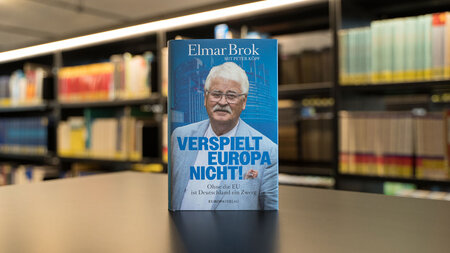"Young Researcher Award" for groundbreaking work on micro-batteries
Hongmei Tang from the MAIN Research Center at Chemnitz University of Technology received an award for her promising research results on micro-batteries with novel battery chemistry and architectures for potential application in integrating tiny energy sources on a chip
 enlarge picture
enlarge picture On 20 September 2023, Hongmei Tang was awarded with a “Young Researcher Award" at the autumn meeting of the European Materials Research Society (E-MRS) in Warsaw. Tang is a research associate at the Research Center for Materials, Architectures and Integration of Nanomembranes (MAIN) at Chemnitz University of Technology (TUC). As part of the team of Dr. Minshen Zhu's research group, which is funded by an ERC Starting Grant, she researches tiny batteries and their integration into microelectronic systems. The prize is endowed with 450 euros. In addition, each winner receives a certificate.
„I am honored to receive the Young Researcher Award. This award means recognition from the community and encourages me to continue to focus on developing high-performance micro-batteries as on-board power source for micromachines. And I would like to show my appreciation to my supervisors, Prof. Oliver G. Schmidt and Dr. Minshen Zhu, as well as our collaborators and the entire research team. With different ideas and skills, teams always gain more than individuals”, says Hongmei Tang.
During the symposium, the jury recognised Hongmei Tang's current research as a particularly outstanding and groundbreaking achievement in the field of materials research, from which even greater insights and subsequently applications can be expected in the future. Previously, Tang had presented her work in a lecture on "Swiss-roll micro-batteries in fluids".
In her current project, Tang is working on the development of a cathode-less battery in the micrometre range - a thousandth of a millimetre. Micro-batteries are a promising energy source with high energy yield for integrated microelectronics. The novel "cathode-less" battery chemistry offers, among other things, adjustable energy density. In contrast to conventional batteries, in the cathode-less batteries developed at the MAIN research centre, the capacity can be adjusted during mass charging with current. Such an adjustable energy density offers more possibilities for different application scenarios with different energy output requirements.
(Author: Matthias Fejes / Translation: Research Center MAIN)
Matthias Fejes
29.09.2023





